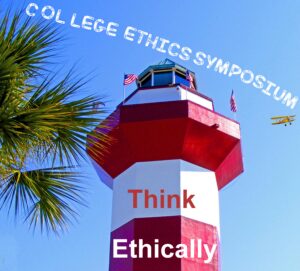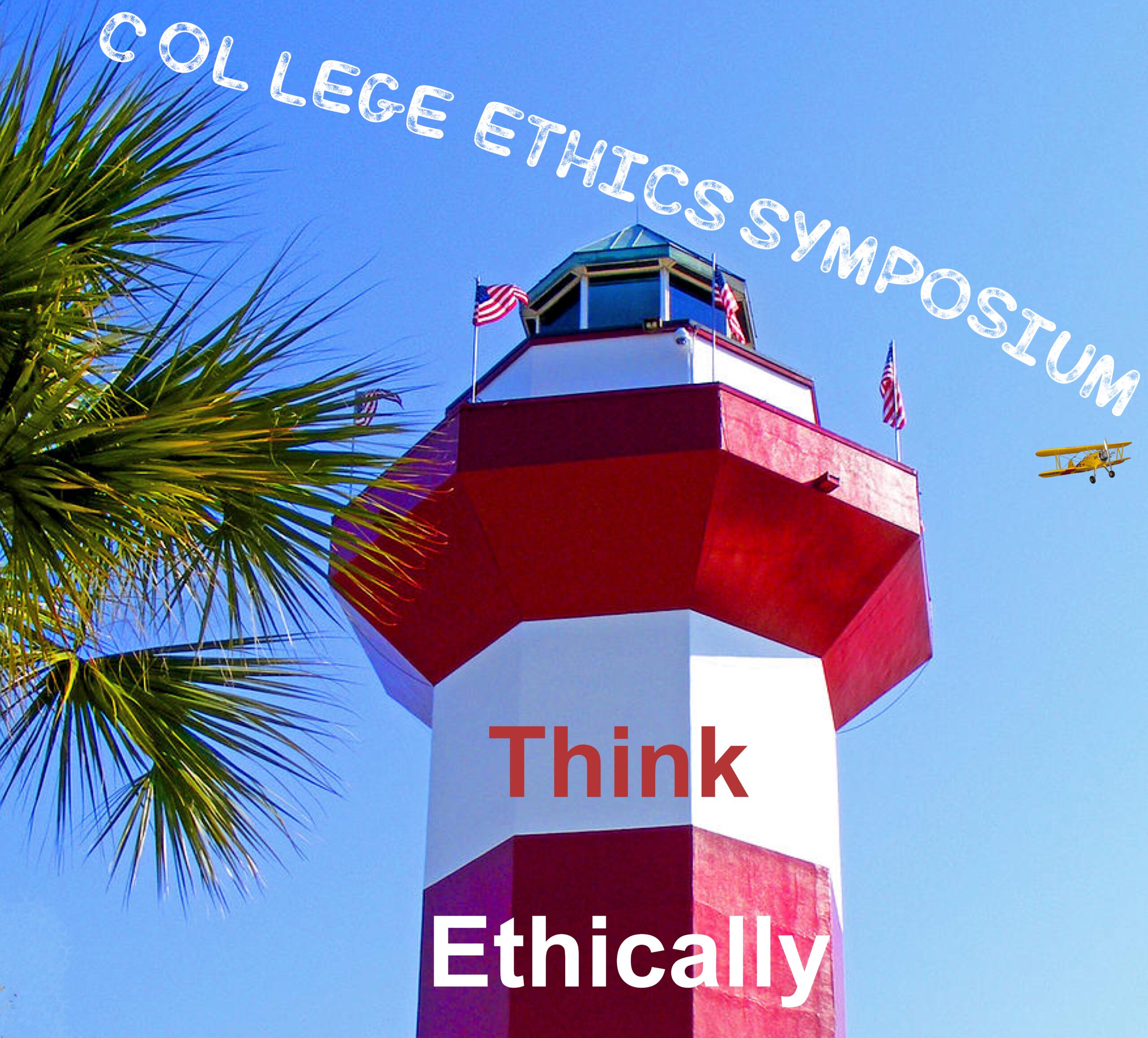A Historical Perspective

The symposium was the brainchild of a group of men who formed an organization called Men of the Church. One of those early founders was Powell Fraser, a retired military officer and educator living on Hilton Head Island. Powell Fraser was a 1941 graduate of Presbyterian College. He wrote: “The event was designed to provide an exchange of ideas between the college students and faculty members of the Presbyterian Church related colleges, and island business and professional leaders.” The leaders of the men of the church were of the opinion that the professional and business leaders who were active in the local church could be of assistance to the colleges in their mission of Christian higher education by providing the students with their experiences in relating their faith to their vocations.
In those early days, the organizers were all men and members of the local Hilton Head Island Presbyterian churches. Attendees stayed in the Fraser Camp bunkhouses on what is now the campus of Providence Presbyterian Church. The initial symposium was for business majors and the theme was, “The Christian Faith and Economic Values – a theological perspective”. The symposium that followed was for medical students with the theme The Christian Faith and the Medical Profession”. What is clear is that the foundational underpinnings of the College Ethics Symposium was narrowly focused and Christian oriented.
After all these years, the one thing that has not changed is the core mission of the College Ethics Symposium which is “To foster ethical decision making by utilizing religious and moral values.” Today, the symposium has evolved where both the leadership team and student attendees are a diverse group. Both males and females contribute. The schools that are invited are from both religious affiliated and secular colleges and universities. Students from all majors attend. Participants may have differing sexual orientations. Students may self identify as followers of a particular faith or no faith at. We can expect that the students and faculty attending will come from all walks of life and have a myriad of values and moral views. Therefore, it is important that both participants and facilitators have a consistent and common understanding for the case study experience. We are interested in promoting sound ethical leadership in all career fields regardless of a student’s particular faith or philosophical perspective.
We are respectful of the principles and values of students who practice other faiths. The primary focus of the Symposium is to teach students that they can be successful in their careers and be ethical. In addition, students learn how to identify and resolve difficult ethical issues that occur in the workplace.
While participating students come from all walks of life, participants must be aware of the historical foundations that the College Ethics Symposium was built upon. Attendees should be aware that the hosting venue will be at a christian church. Students can expect to hear prayers of thanks and guidance to begin group activities. However, there will no attempts to indoctrinate or evangelize.
The small group discussion format for the students provides a unique opportunity for them to review, discover, and explore the ethical aspects that arise in the worksite as well as in their personal life. Integral to this is the opportunity and freedom to more fully understand where they are in their own ethical-moral development on the numerous ethical issues that are raised by the cases and identified by group participants. The discussion leader, an experienced business or professional person, can facilitate this by establishing a climate whereby it is safe to look at the issue from several perspectives without necessarily agreeing with that viewpoint. The students should not feel like they are being judged or that their point of view is wrong. Although one’s religious or philosophical perspective may dictate that such a view is unacceptable, discussing the various sides of the issue can lead to greater understanding of the nuances and complexities of the case.
The question of the source of ethical and moral principles and the validity thereof is fundamental to the discussion. According to the Encyclopedia Britannica, ethics (also called moral philosophy) is the discipline concerned with what is morally good and bad and morally right and wrong. Ethics is practical decision making, and its major concerns include the nature of ultimate value and the standards by which human actions can be judged right or wrong. Plato, in his dialogue Euthyphro, considered the suggestion that it is divine approval that makes an action good. Plato considered this impossible and so held that there must be some standards of right or wrong that are independent of the likes and dislikes of the gods.
Four generic ethical codes (or frameworks) are provided for the students: one is an adaptation from the medical, social, and psychological sciences; another from philosophy and various, philosophical approaches; and the third from the life and teachings of Jesus. Students are also encouraged to bring a code of ethics related to their field of study. Obviously, in the discussion they are expected to bring their personal ethical thinking they have learned from their family, the community, their culture, and their religious training. As a group, we expect students to include their religious perspective in discussing the case but not limit the discussion to a particular perspective. No one perspective is necessarily endorsed by the leader as the exclusive one to hold. Coming to a group consensus on the right decision or choice is not the goal.

